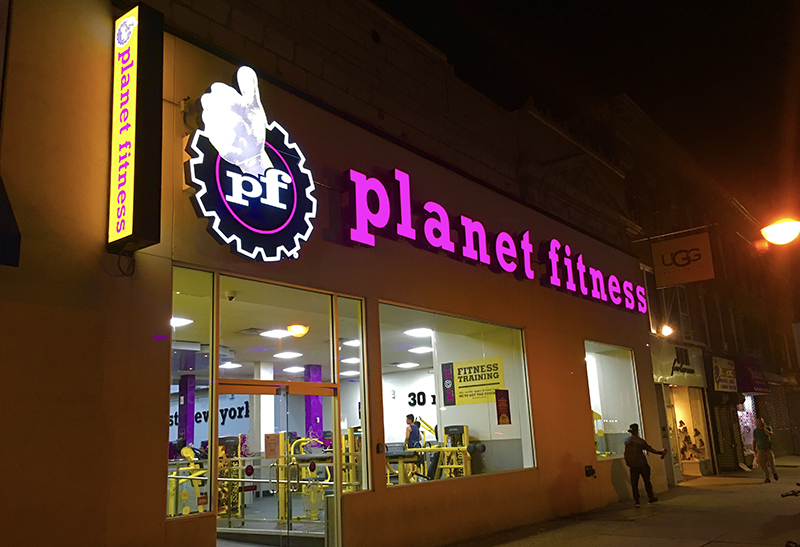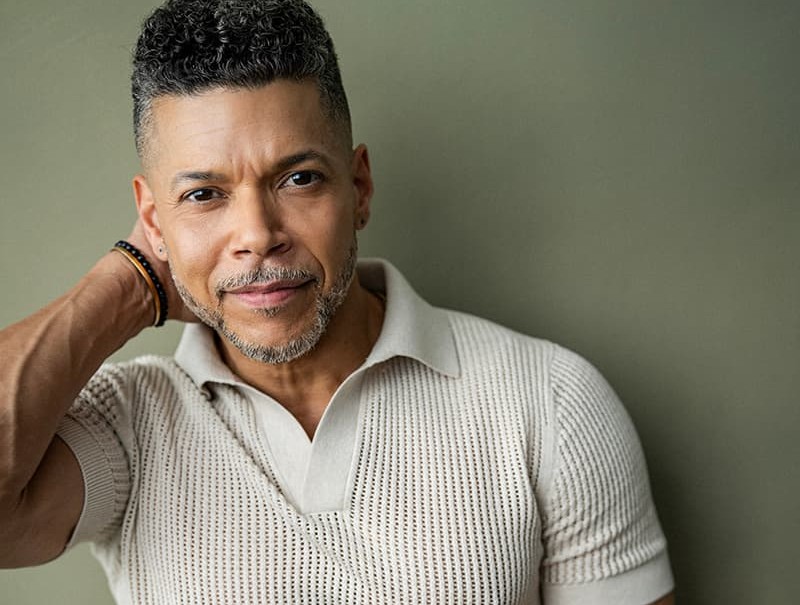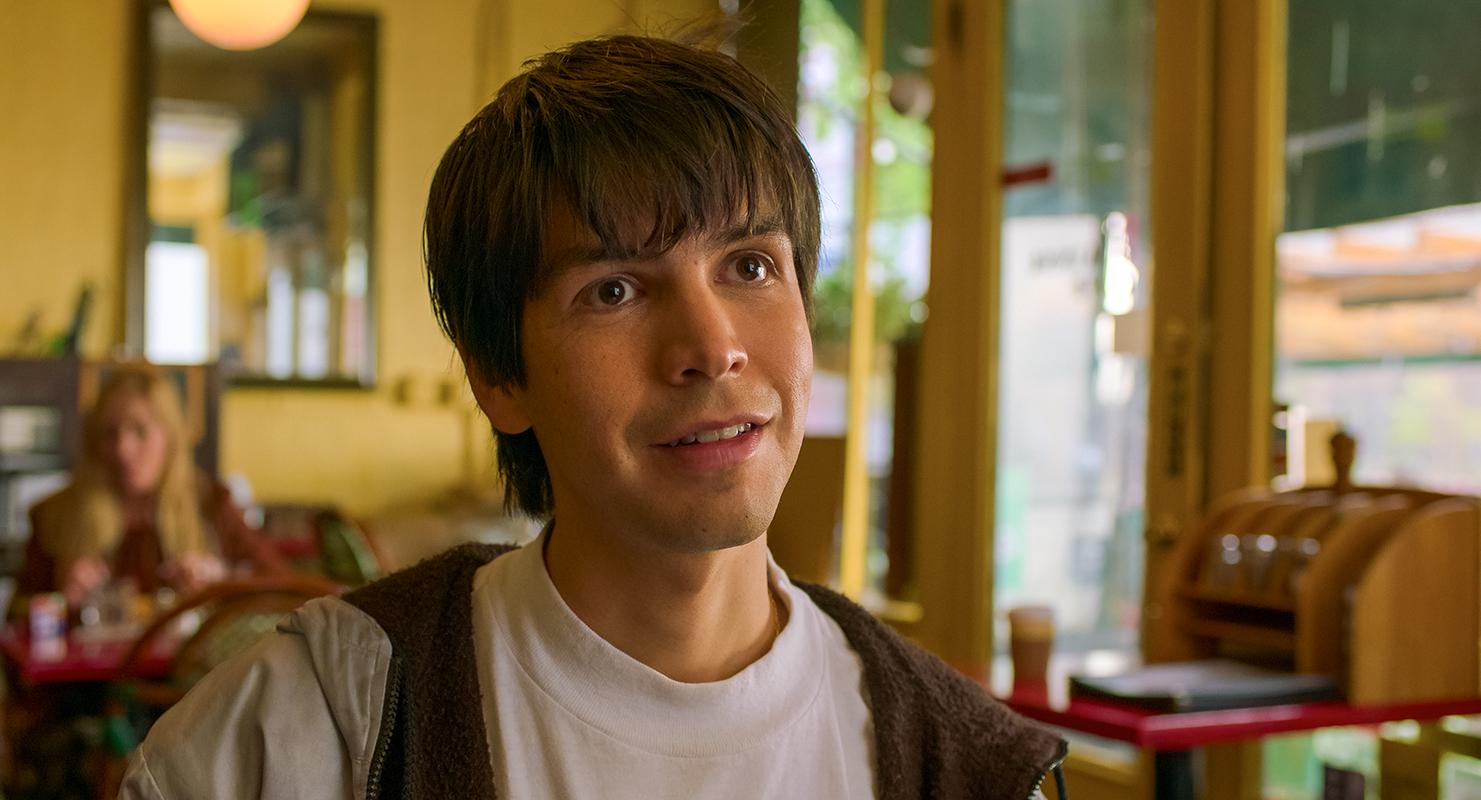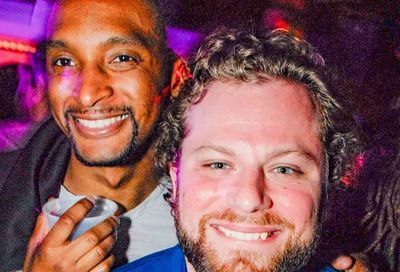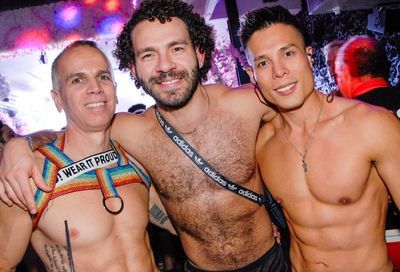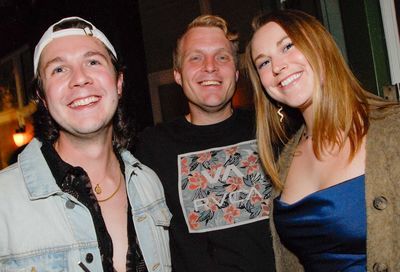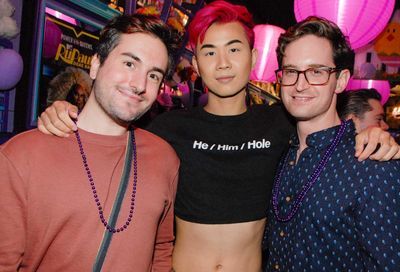Laverne Cox Rocks
From bullied in Alabama, transgender activist and actress becomes scene-stealing star in Netflix's ''Orange Is the New Black''
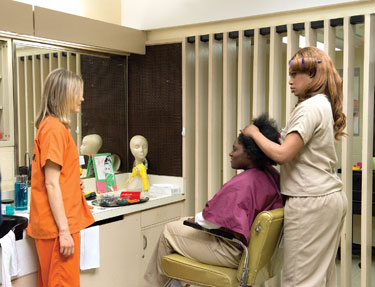
(Left to right) Taylor Schilling, Danielle Brooks, and Laverne Cox
(Photo by Ursula Coyote for Netflix)
MW: Speaking of transitions, when did you realize your identity as female?
COX: It was a lot of denial.
In the third grade, my teacher called my mother and said, ”Your son will end up in New Orleans wearing a dress if you don’t get him into therapy right away.” I was put in therapy. I was so feminine. I had this fan I bought on a church trip. I was sitting class fanning myself – I think I wanted to be Scarlett O’Hara. This was, like, a huge problem. That teacher pulled me up out of my seat and took me to another teacher and said, ”Show her what you were just doing with that fan.” I showed here, and then my mother got the call. It was like, ”This is unacceptable.”
Because of that and the therapy, I saw all this transphobia. I could never, ever wear a dress. I could never end up this way. That’s what was drilled into me.
So when I moved to New York, hanging out in clubs, seeing drag performances, then trans people, and then seeing some trans people transitioning, I was like, ”Ah…. Okay. It’s time.” I was very androgynous when I got to New York. I had a shaved head and I wore lashes every day and makeup. It was sort of from androgyny to eventually making a medical transition. It was really just about getting to know trans people and realizing that all these misconceptions I had about trans people were erroneous.
MW: Your identity as a transgender woman, aside from being so personal, in our society that can be so political. And you’ve gotten very involved, from antidiscrimination legislation to housing issues, your columns on Huffington Post. Would you consider running for political office?
COX: Oh, God no. No. No. Politics is just way too dirty. They expect you to raise extreme amounts of money.
I’ve been thinking a lot – having more of a platform, because of this show – what kind of shape my advocacy work will take, what it will look like in terms of really effecting change. I’m still sort of figuring that out, what the next step is.
Transgender people are in such dire straits, really, in terms of employment, health care, incarceration, ”stop and frisk”…. So many issues. How can I really affect the lives of trans people?
MW: The National Center for Transgender Equality has a focus on federal prisons. With your role on Orange Is the New Black, is that something you’d feel comfortable lending your voice to?
COX: Absolutely. The second I got this role last year, I was thinking about, ”How can we use this show as a way to highlight the problems of trans people in prison?” It’s something I’ve been talking a lot about. I talk about CeCe McDonald and her case in Minnesota. She’s in a men’s prison.
Oftentimes trans women are housed in a men’s prison. One of the issues that the National Center for Transgender Equality is working on is detention of undocumented trans people. They’re often not housed appropriately. The new standards of PREA, the Prison Rape Elimination Act, state that that’s actually illegal now, although it hasn’t been fully implemented across the country. But those regulations do not extend to undocumented detainees. It’s a huge issue.
Trans folks experience a different kind of harassment – from guards, from other prisoners. So often when trans women are placed in men’s prisons, they’ll place us in solitary confinement, allegedly for our protection. It’s cruel and unusual punishment to be indefinitely cut off from contact.
Support Metro Weekly’s Journalism
These are challenging times for news organizations. And yet it’s crucial we stay active and provide vital resources and information to both our local readers and the world. So won’t you please take a moment and consider supporting Metro Weekly with a membership? For as little as $5 a month, you can help ensure Metro Weekly magazine and MetroWeekly.com remain free, viable resources as we provide the best, most diverse, culturally-resonant LGBTQ coverage in both the D.C. region and around the world. Memberships come with exclusive perks and discounts, your own personal digital delivery of each week’s magazine (and an archive), access to our Member's Lounge when it launches this fall, and exclusive members-only items like Metro Weekly Membership Mugs and Tote Bags! Check out all our membership levels here and please join us today!



